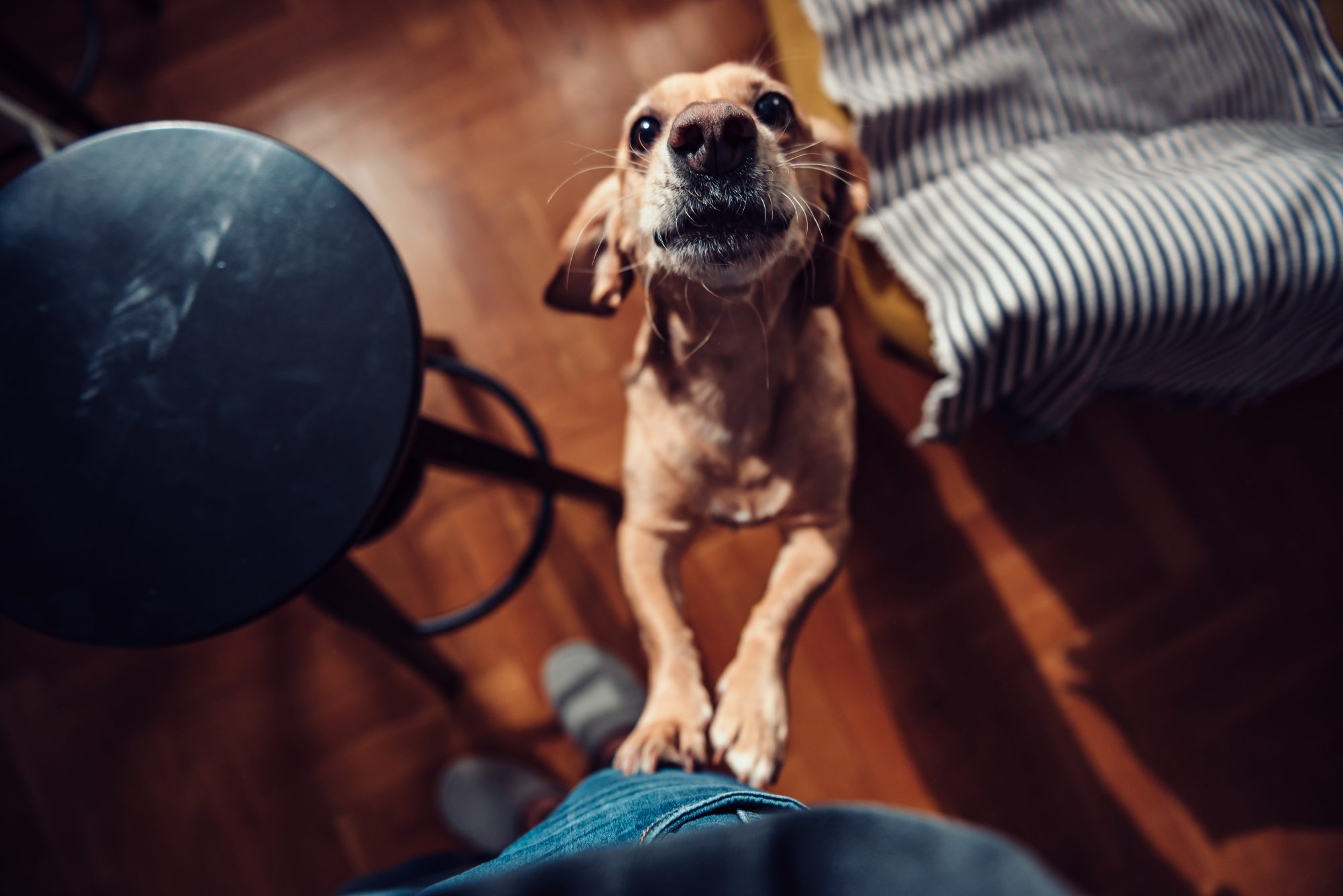Undoing the Damage: Untraining Bad Habits in Dogs

Dogs are smart. Their ability to recognize patterns and to anticipate cause and effect relationships is almost humbling to us humans at times. It is easy to harness these traits for good, but sometimes these qualities in our canid friends can backfire, too.
Most pet dogs have picked up some bad habits along the way. Your friends at Leon Valley Veterinary Hospital want you to know that if you have inadvertently taught your pup some poorly received tricks, all hope is not lost. While it can take a lot of work, untraining bad habits in dogs is possible under most circumstances.
An Ounce of Prevention
When dogs pick up bad habits, like it or not it is usually our own fault. Whether it be insisting on a treat any time they set foot outside, hogging the bed, begging for table scraps, or nipping at your heels to elicit play, in some way we have usually reinforced the behavior.
Reinforcing or rewarding a behavior is often not intentional, but it does make it more likely that your pet will repeat the action. Sometimes we reward behaviors with food reinforcers (tossing a piece of your dinner to your pet from the table or offering a Milkbone for going outside). Many times, though, these reinforcers are less obvious. Examples might include petting, playing, talking to your pet, or even getting up and doing something specific.
Rewarding behavior is a good thing in general. Positive reinforcement is how we successfully train our pets to do the things that we would like them to do. It is a powerful weapon, though. Be sure to:
- Only reward behaviors that you truly want to encourage
- Be conscientious of what types of rewards your pet values
- Use special treats only for special behaviors
- Keep your pet’s brain and body well exercised to prevent boredom
Keys to Untraining Bad Habits in Dogs
So what if it’s too late? If the unwanted behaviors have already happened, all hope is not lost. Untraining bad habits in dogs might be a little work, but dogs are smart and most owners are very capable.
Make sure you take into account the key factors in undoing the inadvertent damage:
Consistency is the cornerstone — It is very important that everyone in your family stop reinforcing the behavior or habit you don’t want your dog to display. This can be hard, especially since your pet will likely have something to say about not getting a reward that they are used to. Be sure that the entire household knows what is expected of your pooch to ensure faster results and better success.
Praise don’t punish — Rewarding for wanted behaviors (positive reinforcement) works so much better than punishment for pets. For instance, if your dog is a terrible beggar, teach them to go to a rug or crate on command then reward them for resting there during your meal times. Clicker training can be a great tool for teaching desired behavior.
Enrich, enrich, enrich — Idle paws are the tools of the devil. Okay, maybe not exactly, but a bored dog is more likely to cause trouble and engage in destructive behaviors. Be sure to provide opportunities for physical exercise and also encourage mental stimulation through training, puzzle toys, and development of problem solving skills.
Sometimes untraining bad habits in dogs can be a little more difficult. If you are having trouble, don’t hesitate to contact us. Sometimes other problems such as separation anxiety can be at play, complicating matters.
Dog training can be a very rewarding endeavor. Whether you are a knowing participant or not, you are training your pet in some way each day. By paying attention, you can use that power to shape your dog’s behavior in a desirable way and make your relationship with your dog even more enjoyable.


